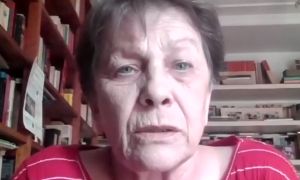Relations between the European Union and Russia have centered the debate of the last Cafè Europa of the season, which has had the participation of the MEP of the Progressive Alliance of Socialists and Democrats of the European Parliament, Javi López, and the CIDOB researcher specialized in Eastern Countries, Carmen Claudín.
"Russia tends to be belittled and its influence is important," said the MEP. For Javi López, we must continue working side by side with Russia, especially on public health, climate change and economic issues. For her part, Carmen Claudín considered it a good idea to focus the debate on these three priorities since "they can be worked on at a technocratic level." According to the researcher, the political position that Russia has adopted makes it a country with which one can "talk but not dialogue." The dialogue with the Kremlin says, "it entails giving up European principles and values."
However, López believes that it is necessary to continue talking to Russia about human rights, while limiting its attempts at interference. Above all, López says, we must put the red line in respect for the sovereignty of European states and, particularly, those that are part of their area of ??influence, traditions. And it is that Russia, Claudín affirmed, considers its vital area of ??interest the whole of the former USSR. Therefore, by the Kremlin, this area is not part of foreign policy, but rather treats policy towards these countries as an internal matter. However, the foreign policy of the EU is limited by unanimity and some countries have very strong ties with Russia, especially Orban's Hungary. The lack of a clear EU position therefore strengthens Russia vis-à-vis Europe.
Claudín considered that Russia is less powerful than it seems, but that does not make her external influence less relevant. Or in the words of Javi López, Russia does not have "the capacity for a direct confrontation, but it has a lot of hacking power." Lately, moreover, Russia has implemented a soft power strategy based on the supply of vaccines, although, according to the researcher, You are having trouble meeting your commitments.
Russia, China and the EU
Russia maintains a very unbalanced relationship with China, explained Carmen Claudín. Aware of these limitations, Russia agrees to be a junior partner of the Asian giant, which it does not accept either with Europe or the United States. But the China-Russia pact is not particularly strong, nor does it seem clear that it has the capacity to last over time. In this sense, the EU strategy can be decisive to position itself as a bridge between China and the United States.
Cafè Europa is an initiative of the Catalunya Europa Foundation and Horitzó Europa









